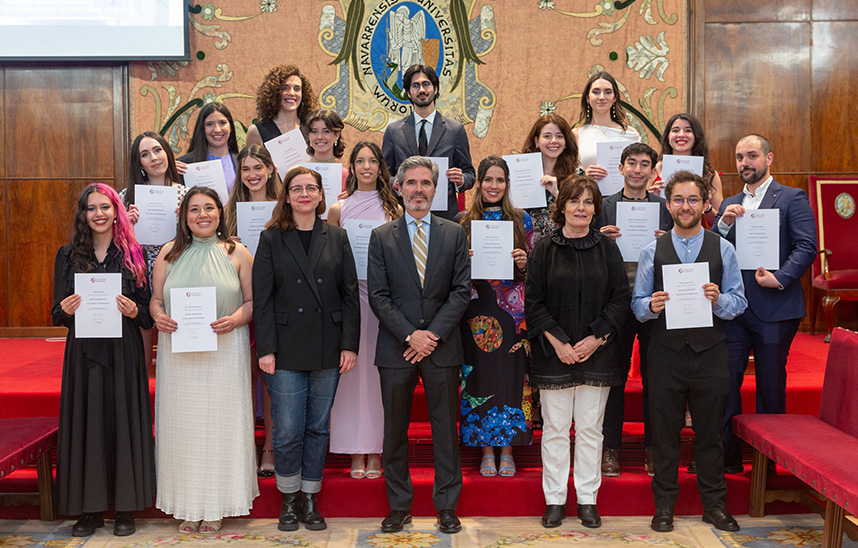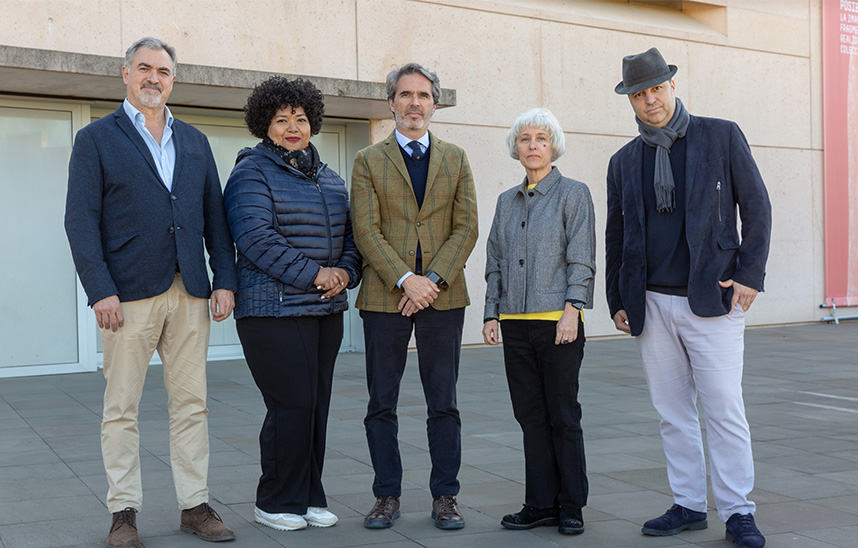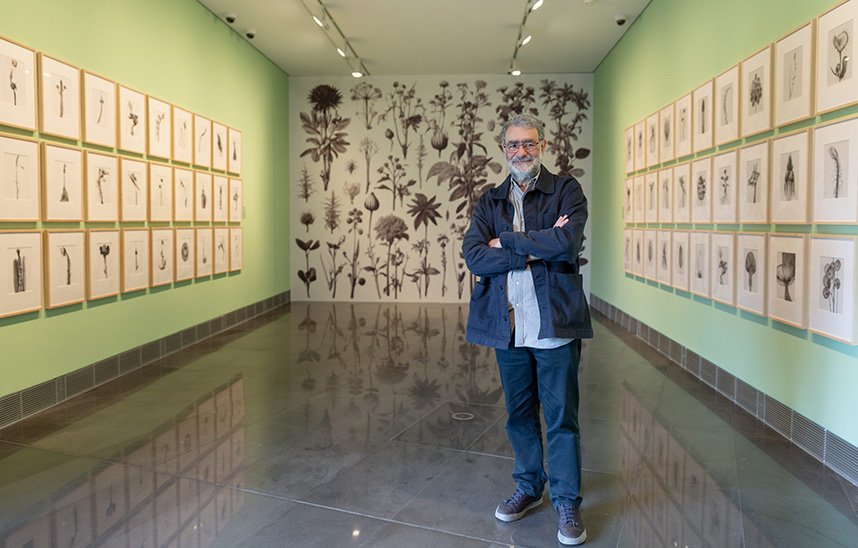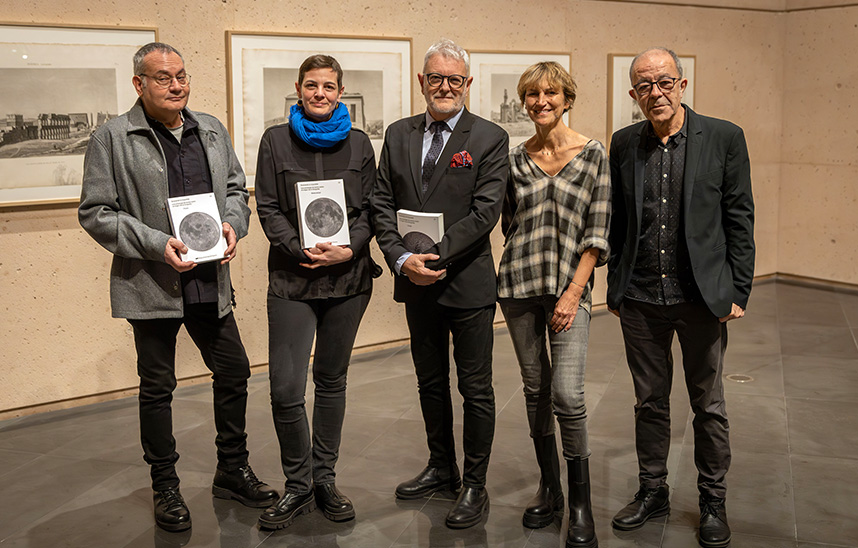noticia_MUN_2021_02_16_la_vida_vivida
The Museum launches 'La vida vivida', a participatory theatrical project born during the pandemic in which the elderly represent themselves in today's society.
People, preferably over 65 years of age, who wish to participate in the initiative, are invited to an initial meeting on February 27 and 28 and March 1.
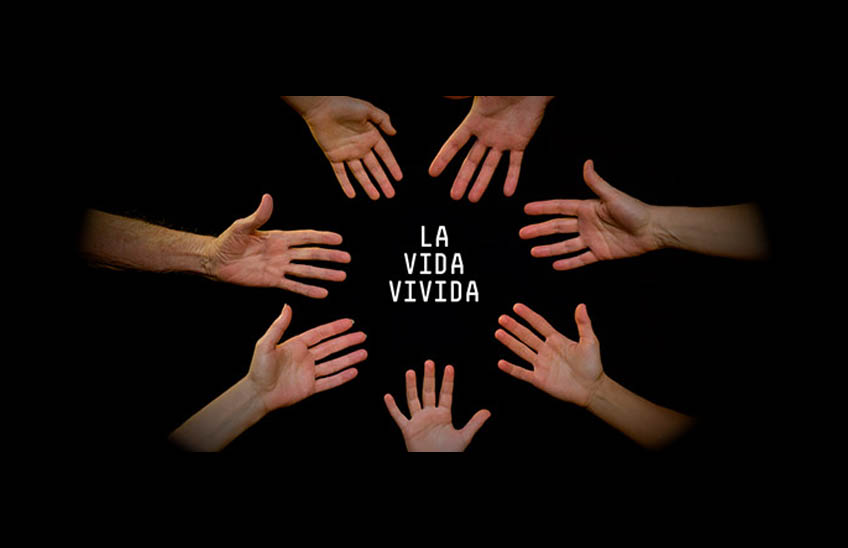
PhotoManuelCastells/La vida vivida
16 | 02 | 2021
The emotions, feelings and experiences of the elderly duringthe pandemic, brought to the stage by the elderly themselves. This is the proposal of The Lived Lifea participatory theatrical project , promoted by the Museo Universidad de Navarra, which invites this group to reflect on their role in today's society by staging a collective dramaturgy.
The initiative is directed by Tomás Muñoz based on an idea by José Manuel Garrido, and the premiere will take place on April 24 at 7:30 p.m. at the Museum Theater. La vida vivida also supports the project QuidArte of the Museum, which has the partnership of LaCaixa Banking Foundation and Caja Navarra Foundation.
In the presentation, Muñoz explained that the proposal, which will include images, videos and even dance, seeks to give "a very clear vision of the heterogeneity of this group of people and their way of facing these situations. The intention is that the truth is the show".
OPEN CALL
Accompanied by José Manuel Garrido; Teresa Lasheras, director of Performing Arts and Music of the Museum; and Pepe Galera, assistant to the the direction of project, Muñoz pointed out the main ones: "We want it to have a political dimension, in the sense that link with the city, with the Greek polis, to recover the original theater as a mirror of society". In this sense, he pointed out that another challenge is "to work with people from a non-exclusively theatrical field and that, without renouncing to reflect these feelings that arose during the pandemic in this group, it works as a theatrical experience. It is very attractive to build a text based on the experiences and stories they will be telling us".
Therefore, the Museum has invited people, preferably over 65 years old, without previous theater experience, who want to participate in the initiative, to an initial meeting on February 27 and 28 and March 1. Registrations can be made by calling the Museum (948 425 700), by e-mail(museo@unav.es) or by filling out the form on the Museum's website project. Rehearsals will be held in March and April.
"It is not about making a general cause on the topic, but to focus on the feelings, on the elaboration of the circumstances that a number of people in a specific age group have gone through, those who have a large backpack of the life they have lived. We want them to make us participate in it through a theatrical experience," said Garrido.
For his part, Galera, who has worked in the last decade in participatory and social theater and even with different groups, has valued that "what people on the street, non-professionals, contribute is incredible. They create a great bond with the spectator. There is a face-to-face dialogue, a look in the eye and identification with the spectator is produced. That is fantastic. We are looking for that plurality and diversity of people who want to tell their emotions and feelings, how they have felt at this time of global pandemic, and share it on stage".
In this line, Muñoz also added that the goal is not to offer "a melancholic or retrospective show. They are people who, just as they have a great life behind them, also have projects for the future and we want to see what they are".
PROJECT VIVO
As explained by director, in La vida vivida there is no previous text, although there is a flexible structure that will serve as a starting point to work with the cast and the interdisciplinary, artistic and scientific team that integrates project. Among them, Nuria Garro, guest professor at School of Psychology at the University of Navarra and expert in behavior and gerontology; Ibis Albizu, PhD at Philosophy and collaborator of area of Performing Arts and Music of the Museum; and Dani Pannullo, choreographer and dancer who will work on the choreographic component of the piece. The group is joined by a group of collaborators who are experts in different areas of the knowledge who enrich the project with their points of view, reflections and knowledge, whether philosophical, neurological, psychological, psychiatric or from the world of fashion.
ARTISTIC RESPONSE
The living experience, in turn, connects with "a Museum approach that is open to society and the community it serves," explained Lasheras. Thus, he emphasized that it is "a participatory Museum that addresses the challenges of the present and actively collaborates with society to build, investigate and expand in a polyphonic way the various understandings of reality, with the goal to safeguard the different memories and meanings that society generates in situations like this.
This proposal thus joins other projects developed during the pandemic in the heart of the Museum, such as the trilogy Behind Closed Doorsby Jon Maya, director of the company Kukai Dantza; and A meter and a halfby Itsaso A. Cano, director of Zuk Performing Arts.


